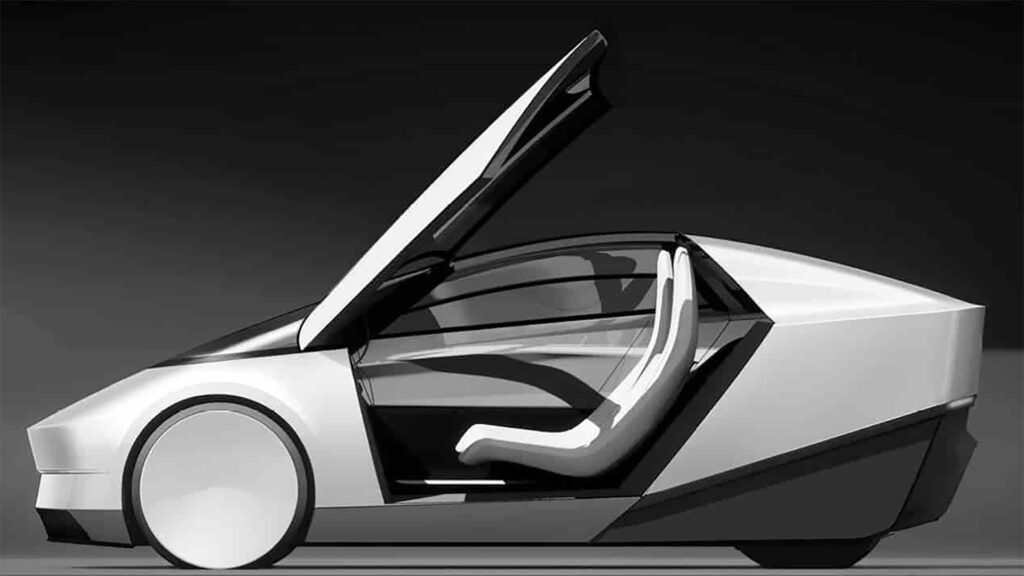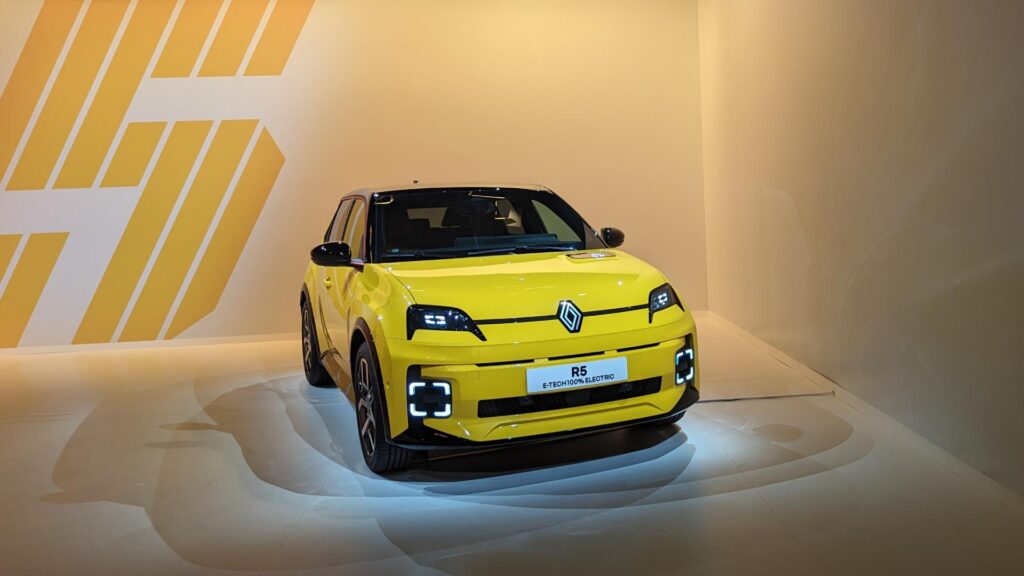Tesla has reportedly canceled its more compact car project, a product which would nevertheless be a great commercial success. The manufacturer would rather bet on a robotaxi, which does not make much sense.
Is Tesla going to be that car manufacturer which, in its catalog, sells a heavy truck but no compact vehicle? This possibility took on a little more weight after an indiscretion signed by Reuters, which indicates that the company would have canceled the Model 2 (name which has never been official), a car smaller than the Model 3. Elon Musk would prefer focus on the robotaxi, a more exciting project in his eyes which will be unveiled in August.
On paper, canceling the Model 2 appears to be an implausible and difficult to understand strategic decision. If Tesla wants to become a sustainable player in the market, then it must supply as many segments as possible – like the others (Volkswagen, Toyota, etc.). In some markets, compacts are preferred. This is the case in France, with the Peugeot 208 and the Renault Clio which have been engaged in a close duel for years. To date, Tesla has no competitor to oppose them.

Tesla needs a Model 2
When I wrote my review of the Volvo EX30, the car I now own, I explained why I chose this model over a Model 3 (or, possibly, a Model Y). Despite their technological advance that is difficult to contest (in terms of efficiency), Tesla’s cars have a major problem: they are too large for many drivers. Even though the quality/price ratio is good, buying larger is not a trivial choice. You have to be able to take responsibility.
Like many, I was impatiently awaiting the presentation of a Model 2, which could be the ideal Tesla: the technologies so appreciated by the manufacturer, in a format truly adapted to my needs.
If the Model 3 remains the most accessible and smallest vehicle in the catalog, then Tesla could quickly experience a volume problem. Sold for under $25,000, the Model 2 is the product capable of constantly supplying factories and meeting continuous demand. Tesla hopes to produce 2 million vehicles in 2024, but the first quarter results are already undermining this objective. With an attractive and well-positioned Model 2, it would be easier to fill. Much more than with a robotaxi, in any case.


The desire for an electric compact
A few weeks ago, Renault lifted the veil on the Renault 5, a 100% electric update of its illustrious model. The French brand hit very hard (not only here), by showing a vehicle that is not a large SUV or an immense sedan. Other models in the segment have attracted attention, like the new Dacia Spring or the Citroën ë-C3.
These cars, sold for around €20,000, are essential to supporting the growth of 100% electric mobility. They are perfect for everyday use, suitable for urban environments and candidates for the role of second vehicle in the home. There is a real wait and Tesla can hardly do without this category, especially in the face of Chinese giants who will not hesitate to flood the market. It would almost be an admission of failure if Tesla refuses to go where everyone else is going.
Everything suggests that Elon Musk prefers to rely on his whims rather than market realities. But it would be a shame to see Tesla waste its lead and its great successes due to bad decisions.
The future of Tesla will definitely be a topic we follow in our weekly Watt Else newsletter.
Do you want to know everything about the mobility of tomorrow, from electric cars to e-bikes? Subscribe now to our Watt Else newsletter!
